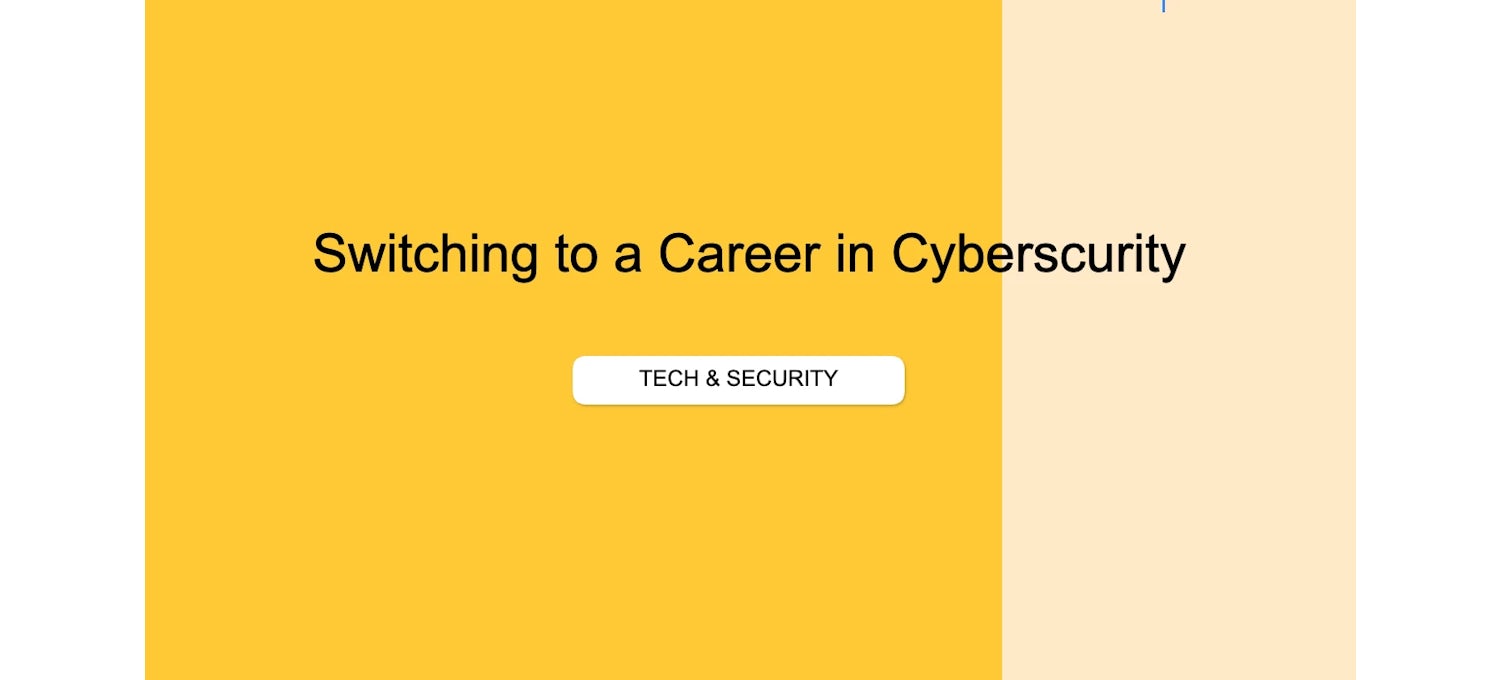Guide to a Successful Career Change to Cybersecurity
Unlock your potential in cybersecurity by understanding how your current skills can be applied in this critical field. Explore how various roles incorporate cybersecurity elements and discover practical steps to transition your career smoothly.

As the digital landscape expands, so does the need for cybersecurity measures. A career in cybersecurity offers opportunities to make a significant impact on protecting information and assets. If you're contemplating switching to this field, this guide outlines the essential skills, suitable previous careers, and actionable steps to forge a successful path in cybersecurity.
Why Cybersecurity Professionals Are in High Demand
Cybersecurity is crucial for defending against data breaches, cyber-attacks, and the theft of sensitive information. With virtually every industry relying on digital services, cybersecurity professionals are in high demand to safeguard systems and networks. This field offers a variety of roles, ranging from technical positions to management roles, catering to a wide range of talents and interests.
Read more: What Is Cybersecurity?
Essential Skills for a Career Change to Cybersecurity
Transitioning to a career in cybersecurity offers a rewarding opportunity to protect critical data and systems from cyber threats. To succeed in this type of role, ensure you possess the following skills:
Technical proficiency: Understanding of systems, networks, and computing environments.
Problem-solving: Ability to think like a hacker to identify and mitigate security vulnerabilities proactively.
Attention to detail: Vigilance in monitoring systems and identifying anomalies that could indicate security breaches.
Knowledge of cyber threats: Familiarity with the current landscape of cyber threats and attack vectors.
Security tools acumen: Proficiency with security software, encryption, and firewall management.
Ethical mindset: Commitment to high ethical standards in handling sensitive data.
Communication: Ability to explain technical concepts to non-technical stakeholders and create effective security guidelines and policies.
Matching Your Skills to the Right Cybersecurity Role
The table below provides a general overview of cybersecurity skills and their relevance to various career fields. Be sure to match your existing skills with potential job opportunities or to pinpoint areas where you may need to enhance your expertise.
| Cybersecurity Skill | Relevant Careers |
|---|---|
| Technical Proficiency | Software Engineers, System Administrators |
| Problem-solving | IT Support/Network Administration, Law Enforcement/Military |
| Knowledge of Cyber Threats | Risk Management/Compliance |
| Security Tools Acumen | System Administration |
| Ethical Mindset | Law Enforcement/Military |
| Communication | Business Administration |
Read more: Job Levelling Matrix for Cybersecurity
Best Career Paths in Cybersecurity
The following radar chart visually represents the alignment of cybersecurity skills with various career paths. Use this resource to determine which cybersecurity career path aligns with your expertise:

Click to zoom
Software engineering: Engineers' deep understanding of software development processes is advantageous for roles in application security and ethical hacking.
IT support/network administration: Experience in managing and securing networks provides a strong foundation for network security roles.
Risk management/compliance: Professionals accustomed to ensuring compliance are well-suited for roles focused on information security standards.
Law enforcement and military: The investigative skills and discipline of these fields are valuable in cybersecurity forensics and incident response.
Business administration: Communication and policy development skills are crucial for cybersecurity policy development and training programs.
System administration: Hands-on technical experience is essential for operational roles in cybersecurity.
How to Change Your Career to Cybersecurity
To begin switching your career to cybersecurity, educate yourself, gain experience, network, and more. Here are the general steps:
Educate yourself: Start with fundamentals through online cybersecurity courses or certifications like CompTIA Security+, CISSP, or CEH.
Build practical experience: Practice security skills by setting up a home lab or contributing to open-source cybersecurity projects.
Network: Engage with cybersecurity professionals through social media, professional groups, and industry conferences.
Certifications: Obtain industry-recognized certifications to validate your cybersecurity knowledge and skills.
Apply for entry-level roles: To get your foot in the door, look for roles such as cybersecurity analyst, junior penetration tester, or security auditor.
Keep current: Stay updated with the latest cybersecurity trends, threats, and technologies through webinars, blogs, and continuing education.
Read more: Popular Cybersecurity Certifications
Your Path to a Successful Career Change in Cybersecurity
The demand for cybersecurity professionals is seeing an unprecedented surge as digital transformations expand across industries. With cyber threats becoming more sophisticated, organizations are prioritizing robust security measures, making it an ideal time to transition into cybersecurity.
This field requires a blend of technical proficiency, analytical capabilities, and essential workplace skills such as communication and ethical judgment. By leveraging your strengths and acquiring specialized knowledge, you can position yourself for a successful and impactful career shift into cybersecurity.
FAQs About Cybersecurity Careers
Yes, changing your career to cybersecurity is entirely possible. Many professionals from diverse backgrounds, such as IT support, software engineering, risk management, and even non-technical fields, successfully transition into cybersecurity. By acquiring relevant skills, certifications, and practical experience, you can start a new career in this in-demand field.
Absolutely, cybersecurity is a thriving career option. With the increasing reliance on digital infrastructure, the need for skilled cybersecurity professionals is growing rapidly. This field offers diverse roles, competitive salaries, and opportunities for continuous learning and professional growth, making it a rewarding career choice.
Yes, you can start a career in cybersecurity even with no prior experience. Begin with fundamental courses and certifications such as CompTIA Security+ or Certified Ethical Hacker (CEH). Building a home lab, engaging in hands-on projects, and networking with industry professionals can also help you gain practical experience and enter the field of cybersecurity.
Additional Cybersecurity Resources:
Cybersecurity Career Quiz: Which Role is Right for Me
Cybersecurity Terms: A to Z Glossary
Guide to Discovering Cybersecurity Careers (Career Path Decision Tree)
Coursera
Writer
Coursera is the global online learning platform that offers anyone, anywhere access to online course...
This content has been made available for informational purposes only. Learners are advised to conduct additional research to ensure that courses and other credentials pursued meet their personal, professional, and financial goals.
